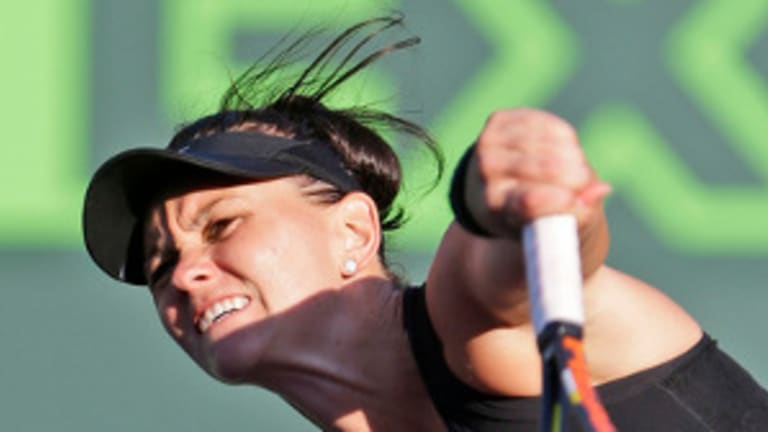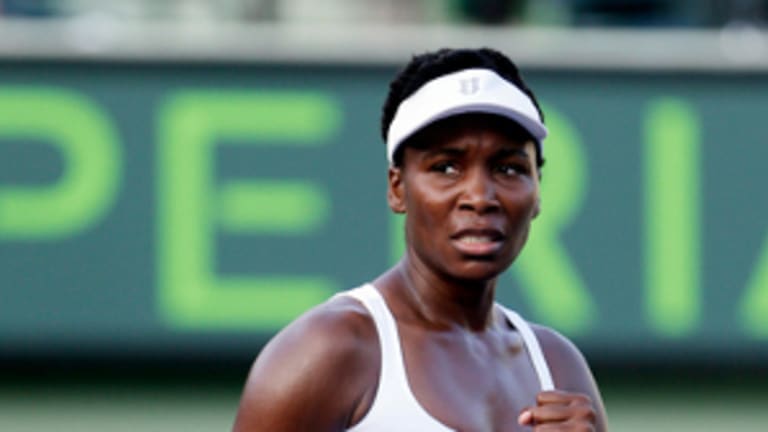MIAMI, Fla.—The gentle breeze over Key Biscayne rattled the palm fronds, the island was bathed in the honeyed glow of late tropical afternoon, and turkey vultures indolently rode the thermals high above this former dump site. The occasional exhortations of the sparse crowd still left in the stadium at Crandon Park had to compete with the untroubled “cheep, cheep” of birds feasting on leftover crumbs in the empty aisles.
“Come on, Vee,” a lonely voice pleaded.
Venus Williams toed the line at the service line, tossed the ball and—pop!—delivered a serve at which her opponent, Casey Dellacqua, could only wave at. A short time later, as Dellacqua and her coach chattered away during a changeover, I found myself hoping that Richard Williams would march out, look his daughter in the eye, and say, “Hey, baby. I love you. Hug?”
But Venus was taking care of business all by her lonesome, as she has done for some time now. Here she was, embroiled with Dellacqua, a volatile Australian left-hander who’s been on a roll, and you had to wonder what Venus was thinking as she gazed out over that vast expanse of empty seats. Whatever it was, it wasn’t, “Why bother?”
She knows why she bothers.
“If I go down it's never easy,” Venus would say later. “At least my opponent knows they have to go to the end of the earth to take me out no matter what the circumstances, usually. . . being out here, even if it's not your best day, no matter what the circumstances are, for me, I just try to walk off the court knowing at least even if I didn't play my best I gave 100,000%.”
This may not have been Venus’ best day. Sometimes it seems that her best days, the kind that once inspired the WTA to use her silhouette as its logo, seem long behind her. She’s 33 years old, and suffers from an energy-draining and fatigue-enabling condition called Sjogren’s syndrome. On top of all that, she had her hands full today with an able and gritty 29-year-old who’s never experienced anything like Venus’ degree of success.

